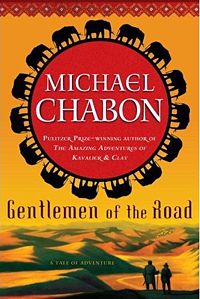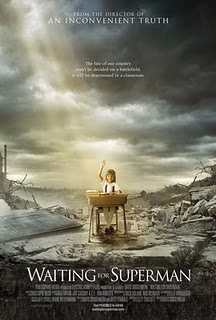On Tuesday, Tikhon Khrennikov, a prolific Soviet composer, died at the age of ninety four. I bring up his name as a cautionary artistic fable in these uncertain times.
Who was Khrennikov? His name is largely a footnote in the United States, even to those of us who study 20th Century music. But in Russia, his is a large and overwhelming presence, as noted by the press coverage and memorial service planned. The reason? He was able to climb to the highest levels of the Soviet artistic circle by conforming to and exemplifying the mandate of Socialist Realism.
In the early 1930s, when Khrennikov was beginning his career, the Soviet government formed the RAPM (Russian Association of Proletarian Musicians) to help enforce communist ideology in music. What was that ideology? It is best seen in the mandate composers embrace Socialist realism – “the truthful and historically concrete representation of reality in its revolutionary development.” In other words, Soviet, communist, revolutionary music was to be lyrical, heroic, and easily understood by the masses.
But what did "easily understood by the masses" actually mean? By the 1940s, when the RAPM was replaced by the Union of Composers, official pronouncements from Andrei Zhdanov, the man Stalin put in charge of governmental cultural policy in the 1940s, was making clear and easy distinctions as to what Soviet music sounded like and what music was acceptable: “Reflecting the general evolution of class society, the music of the past evolved along two main paths: on the one hand the music of the toilers, the exploited, and the oppressed classes (the so-called folk music), on the other hand the feudal bourgeois music, which comprises virtually the entire bulk of written ‘cultured’ music....Bourgeois music in its latest period (that of the entrance of capitalism into its highest stage, financial capitalism) has reflected the process of general decay and disintegration of bourgeois culture. During this period music begins to cultivate decadent moods, and engages in the following pursuits: ... cultivation of sensual and pathological erotic moods as a result ... of a bourgeoisie degenerating morally and physically; cultivation of primitive, coarse subjects." The distinction continues, but you get the idea. Strangely enough, this notion of folk music vs. bourgeois music played out in Soviet culture by exalting the 19th-century Russian school as drawing from the music of the oppressed and exploited classes and therefore worthy of emulation. The highest form of Soviet music was bold symphonic music that praised the people who never had access to it before or during the early Soviet period.
Khrennikov's musical style, which was lyrical and stridently anti-modern, fit well with this ideology right from the beginning. And where it didn't, Khrennikov made sure that his music fit with the times. The first purge of musicians came in 1936, when Pravda attacked the most successful composer of the day, Dimitri Shostakovich. Shostakovich was at a high point with the overwhelming success of his opera Lady MacBeth of the Mtsensk. Unfortunately, Stalin came to a performance and the next day an article appeared in Pravda titled "Chaos instead of Music."
The article ravaged the opera, ominously claiming that "The power of good music to infect the masses has been sacrificed to a petty-bourgeois, 'formalist' attempt to create originality through cheap clowning. It is a game of clever ingenuity that may end very badly."
Usually that bad ending was a bullet to the head, but Shostakovich survived and watched, three years later in 1939, as Khrennikov's first opera, Into the Storm became a hit, largely because of its singable melodies and its plot based on Loneliness, a novel by Nikolai Virta that was commonly known to be among Stalin's favorites. Khrennikov's star continued to rise in the 1940s as he produced patriotic songs and symphonies and endeared himself to Stalin and Zhdanov. By 1948, he was so well-like among governmental artistic leaders that he was appointed Secretary of the Union of Composers, which meant that he had to take Zhdanov's ideology and put it into practice. The result was the final consolidation of the Soviet government's rigid control of musical production, a series of condemnations of prominent composers by labeling them "formalists" and enemies of the people, and the beginning of Khrennikov's 43-year reign as secretary, a post he lost only when the Union of Composers was dissolved following the Soviet Union's collapse.
Khrennikov was a big shot. He controlled Soviet musical policy and had his music played as soon as it was written. He derailed or destroyed the careers of countless composers, including Shostakovich, Prokofiev, Schnittke, Denisov, and Gubaidulina. But his music is almost never played outside of Russia and his name is largely unknown. The composers he criticized and banner, however, enjoy prominent places in the modern musical world. Just search for any of those names in this paragraph's second sentence and you'll discover riches Krennikov denied.
So what's the moral in this. Was Khrennikov a bad person? By all accounts, he could be quite kind, as when cellist Mstislav Rostropovich persuaded Khrennikov to provide money so a sick and dying Prokofiev could buy food, and he occasionally supported composers under official attack, as he did with Moshe Vaynberg during the anti-Semitic purges of 1948. But he chose to protect himself above almost all else and was willing to change his art to do so. One of the reasons I find Harry Partch so compelling a musician is that even in the face of incredible opposition, he never wavered from his aesthetic convictions. That focus is rare and valuable in the arts, and it translates into compelling music. Even when the state, the culture, your closest colleagues tell you to compromise just this once to get by a little easier, remember Khrennikov.
Shostakovich understood this and continued to write music as he wanted, even though he never published much of it. As a fitting end to this tale, one of those "desk drawer" pieces provides Shostakovich's view of Khrennikov. His cantata, “Rayok,” was written in the late 1950s as a four-voice, satirical view of Zhdanov's decrees and the speeches other composers made in support of it. When the work was finally performed publicly in 1989 (14 years after the composer's death), guess who's words made an appearance? I suppose Khrennikov will live on in history after all.
Self-doubt in the tech industry
2 years ago




3 comments:
thanks, Andrew. I love 20th c. music history tidbits! I'm listening to Shostakovich #5 now. Long live the formalist bourgeoisie and their degenerate music!
No problem - I get paid to give our musicological tidbits, which is about the greatest job ever. What I especially love about the 5th symphony is that even though it is supposedly Shostakovich giving in to socialist realism, the triumphant fourth movement is underscored with a hint of defiance, of him thumbing his nose at the whole concept. No one does irony and sarcasm in music like Shostakovich, which is one reason I love his music so much.
Post a Comment